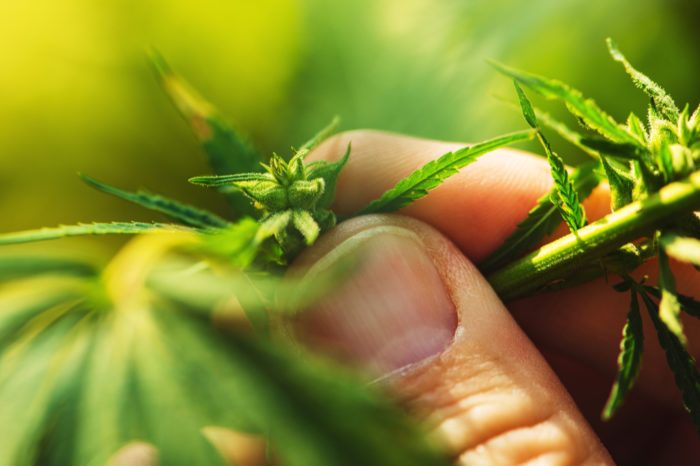A survey collects all of the reasons your cohorts are trying cannabis. Is your reason here?
Cannabis consumption dates back as far as 500 BC, based on findings in Chinese and Siberian shaman graves. Nowadays, its recreational and medicinal consumption is much more widespread in every section of society. An estimated 52 percent of adults in the United States have tried cannabis at some point in their lives.
So why do people take cannabis? How widespread is cannabis consumption? And does the type of cannabis product influence its consumption? These are some good questions to ask yourself when considering, “should I try weed”?
What’s The Primary Reason People Consume Cannabis?
A recent study by ValensGroWorks Cooperation surveyed 1,500 current cannabis consumers across Canada, as well as over 1,000 general population residents. They wanted to understand who consumes cannabis and why. The findings showed that, even though Canada had legalized medical cannabis years ago, only 14 percent of current consumers has a prescription.
The survey also found that the number one reason for consuming cannabis was to relax. Of those surveyed, 79 percent of current consumers take cannabis regularly/occasionally for relaxation purposes. Fun/recreation closely followed relaxation at 74 percent. The other top reasons included stress relief (69 percent), sleep aid (60 percent), to reduce anxiety (55 percent), provide relief for a medical illness/condition (50 percent), and to help “escape” (46 percent). This indicates that although many consumers are not directly treating cannabis as a medical product, they are aware of its therapeutic benefits.
If you think you have need of any of these reasons, then the answer to “should I try weed?” should certainly be a yes!

Contemporary Perceptions Of Cannabis
The same study also compared the perception of cannabis between consumers and non-consumers. It’s no surprise that 94 percent of current consumers agreed or strongly agreed that “cannabis has long been used to treat illnesses; now that it’s legal, more people are able to use it to feel better”. What was slightly more surprising, however, was that well over half of the non-consumers (67 percent) also agreed or strongly agreed with this sentiment.
Although the study found that those aged 18-35 were most likely to consume cannabis in the next 12 months, a literature search has found that the greatest increase in cannabis has been observed among those aged 50 and above. A study on cannabis consumption in older adults (60+) in Colorado collected information from both consumers and non-consumers. They discovered that older adults want to communicate with their healthcare providers about cannabis to obtain more information about potential benefits.
How Widespread Is Cannabis Consumption?
The ValensGroWorks survey found that just over 1 in 5 people (21 percent) have consumed cannabis for recreational purposes, and 1 in 10 (10 percent) said they consumed weekly. Meanwhile, 17 percent of participants consume cannabis for medical reasons, with 10 percent consuming it on a weekly basis. Men are slightly more likely than women to consume cannabis, with the survey finding a 55-44 percent split, respectively.

CBD vs. THC: Should I Try Weed, or Just CBD?
THC is the psychoactive compound that is responsible for the medicating effects people experience when smoking or eating THC-rich cannabis products. It is extremely beneficial in stimulating appetite. Two drugs approved by the FDA (Marinol and Syndros) contain a synthetic version of THC. These are approved for therapeutic uses such as anorexia and easing nausea in chemotherapy patients.
However, it’s worth noting that THC content is not the only reason people are answering yes to the question, “should I try weed”. CBD extract has no detectable THC levels. This is preferable for many people who desire cannabis’s therapeutic effects without psychoactive and perceptive changes.
The CBD subset of the cannabis industry is fast growing. In fact, the Brightfield group forecasts that sales of CBD will reach $22 billion by 2022. Public interest seems to be rising too; “CBD Gummies” was the third highest on the list of most common food-related Google searches in 2018. Moreover, a focus group study found that consumers of edibles often prefer it to smoking to avoid the smell and second-hand smoke exposure.
Epidiolex is an FDA-approved product that contains purified CBD to manage seizures. There is mounting evidence showing that CBD therapy relieves chronic pain and reduces inflammation by its action on the CB2 receptor.
At the moment CBD is marketed for its ability to ease pain, reduce anxiety and depression, and reduce inflammation. CBD might even have neuroprotective properties and benefit heart health. If you struggle with these, instead of asking “should I try weed?”, you could start with CBD to ease yourself into the world of cannabis.

So … Should I Try Weed?
There is widespread awareness of the therapeutic benefits of cannabis for both consumers and non-consumers, especially CBD. However, most cannabis consumers appear drawn towards cannabis’s relaxing effects.
If you worry about the stigma surrounding cannabis, know that healthy patients continue to destroy it every day. Reefer Madness is dying, and with it, so too can your reservations. If you’ve struggled with sleep, stress, chronic pain, inflammation, heart health, or mental health concerns then consider cannabis to help manage symptoms and live with a higher quality of life.





